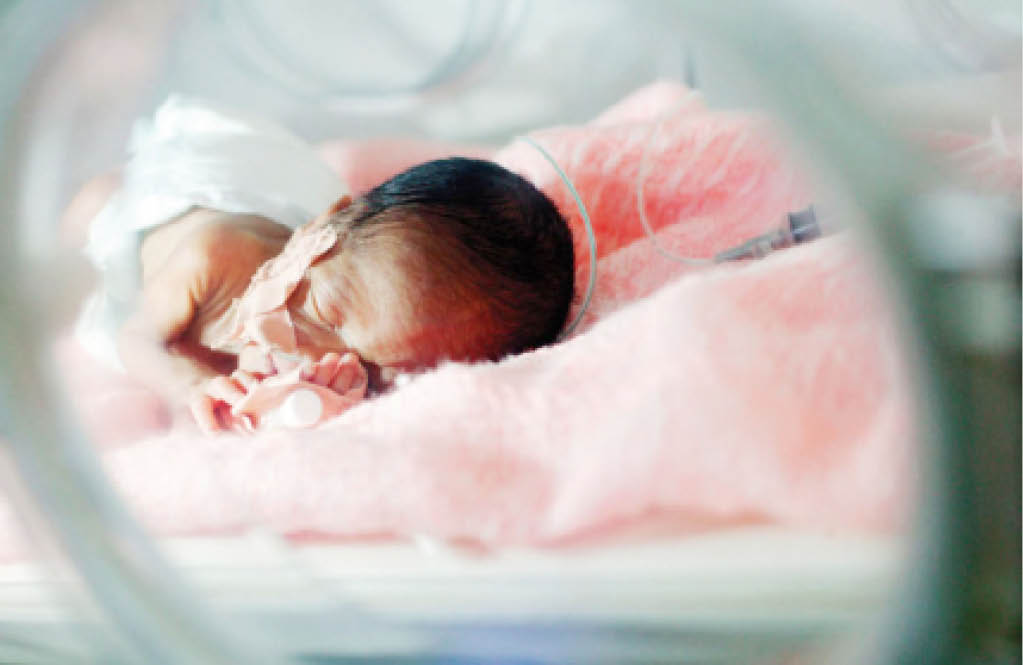City hospital reels under 200 deliveries a month, 9 beds
Since opting into an ongoing project for Maternal Perinatal Death Surveillance and Response (MPDSR), the indices recorded at the Nyanya General Hospital has improved, but the hospital says it could do better with a second theatre and a neonatal care unit. They are the main prayers the hospital laid during a working visit of the […]

Since opting into an ongoing project for Maternal Perinatal Death Surveillance and Response (MPDSR), the indices recorded at the Nyanya General Hospital has improved, but the hospital says it could do better with a second theatre and a neonatal care unit.
They are the main prayers the hospital laid during a working visit of the German minister for economic development and social development, Gerd Muller.
Items listed by the hospital’s medical director Dr Philip Ekpe to fit out a second theatre and a neonatal care unit include two autoclave, one anaesthesia machine, one operating table, two resuscitators, one operating light, four incubators, three bilitron machines to aid phototherapy in children with jaundice, two icterometers for screening for jaundice, two ultrasound machines, one x-ray machine and a standard ambulance for referral and transfers.
He said the hospital has in the past 20 years “evolved from primary health care through comprehensive care and now a secondary health care centre” with a major focus on maternal and child health.
It runs nine paediatric beds, 14 post-natal beds and eight gynaecological beds and only four functional incubators.
“That is not enough for the over 200 deliveries and over 75 caesarean sections in a month,” said Ekpe.
“Thus, there is a lot of referrals of preterm babies and women in labour with attendant morbidities.”
The project on MPDSR in select hospitals implemented by Rotary International and funded by the German government focuses on reporting the death of every woman who dies in childbirth on an electronic platform.
It started with tertiary hospitals but has expanded to include small community health centres—and allowing disease and surveillance officers to report maternal statistics.
The expansion and documentation give “opportunity to see causes of deaths,” says Dolapo Olufadeji, coordinator of the project.
“Maternal death has for a long time gone unrecognized as an event of no use. Now it is on the front burner. Losing a woman as a result of childbirth and pregnancy complication is not acceptable, because the causes of death are preventable.”
It provides a platform to levels of data on women, how many attend antenatal care, how many report back after birth, safe delivery, type of delivery. Deaths especially are documented on the platform within 24 hours and reviewed within 30 days.
“This project has brought maternal statistics as a reportable condition. Disease and notification officers now have maternal statistics on the schedule,” says Olufadeji.
The project plans to train an electronic reporting official in each local government area to feed data onto the platform faster.
“We can show from the platform that those hospitals who have been participating in obstetric quality assurance since 2010, primarily in the north, show decreasing rates of maternal mortality, compared to those that began later,” said a German consultant involved with the platform since 2014.
“It shows that active engagement with the data and critical analysis can lead to better service. And this is the philosophy embedded in the obstetric quality assurance platform
“The DHS has information on births and deaths and all sort of notifiable diseases, but it doesn’t mix them into a blend of obstetric quality assurance.”
Nyanya hospital’s journey with the full extent of the obstetric quality assurance project still has some ways to go, considering the number of women and children referred out for lack of proper equipment.
Since 1995, the German development ministry through Rotary has contributed over $200 million in cash and kind—from equipment and capacity building to birth kits, mosquito kits, vitamins and minerals.
“The rate of maternal mortality in this country is still high. We need every encouragement that will reduce maternal mortality. One of them is contraception,” said Ekpe.
“If a woman has more than five children, she stands at a higher risk of haemorrhage and death following deliver, and with contraception, that is not going to happen.”
Funding from the German government pays for the contraception offered free at Nyanya.
“Family planning is very important but what is especially important is that women can make decisions that are empowering,” said Muller.
“It is also very important to provide free access to contraceptives for women and to address youth at schools with education and information.”
